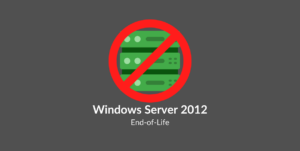Coronavirus scams are spreading nearly as fast as the virus itself

Fake coronavirus vaccine scams should be on your radar
The overwhelming amount of news coverage surrounding the novel coronavirus has created a new danger — phishing attacks looking to exploit public fears about the sometimes-deadly virus.
Fraudsters closely follow the headlines, adapting their messages and tactics as new medical and economic issues arise. With the entire world looking at the ongoing pandemic we can definitely expect to see diversification in approaches from cybercriminals.
With recent reports of significant progress in the race for a vaccine, scammers will likely attempt to capitalize on worldwide interest as an opportunity to step up malicious email campaigns with subject lines including promises of vaccines and other aid, often in the guise of government agencies or humanitarian organizations.
These types of spear phishing campaigns will likely last through the 2020 elections with varying degrees of diversification of the COVID-19 theme. Spear phishing emails are designed to attract victims to click on malicious links embedded in the email. We can expect malicious links in emails to be associated with online data storage services, such as GoogleDrive.
Practice basic cyber hygiene
Cyber hygiene is about training yourself to think proactively about your cyber security — as you do with your daily personal hygiene — to resist cyber threats and online security issues.
Be careful when you browse for information about coronavirus. Developing and testing vaccines for viruses takes a long time, and you’ll hear about them first from a legitimate source, such as the U.S. Centers for Disease Control and Prevention (CDC) or the World Health Organization (WHO).
Use the right tools for cyber hygiene
Without the right products and tools, information you think is secure could, in fact, be at risk.
Reputable antivirus and malware software, a network firewall, and password protection all help to protect data stored on your devices. Taken together, these tools may help you feel confident about the security of your laptops, smartphones, and any other devices.
Tips to avoid coronavirus scams
Good cyber hygiene is a general practice that can help keep you safe and secure online, but there are several best practices to ensure your cyber hygiene is the best it can be. Here are some tips:
- Avoid online offers for coronavirus-related vaccines or cures; they aren’t legitimate.
- Be wary of emails, calls and social media posts advertising “free” or government-ordered COVID-19 tests. Check the FDA website for a list of approved tests and testing companies.
- Don’t click on links or download files from unexpected emails, even if the email address looks like a company or person you recognize. Ditto for text messages and unfamiliar websites.
- Don’t share personal information such as Social Security, Medicare and credit card numbers in response to an unsolicited call, text or email.
- Be skeptical of fundraising calls or emails for COVID-19 victims or virus research, especially if they pressure you to act fast and request payment by prepaid debit cards or gift cards.
- Ignore phone calls or emails from strangers urging you to invest in a hot new coronavirus stock.
Take back control of your online privacy.
Explore more on:





